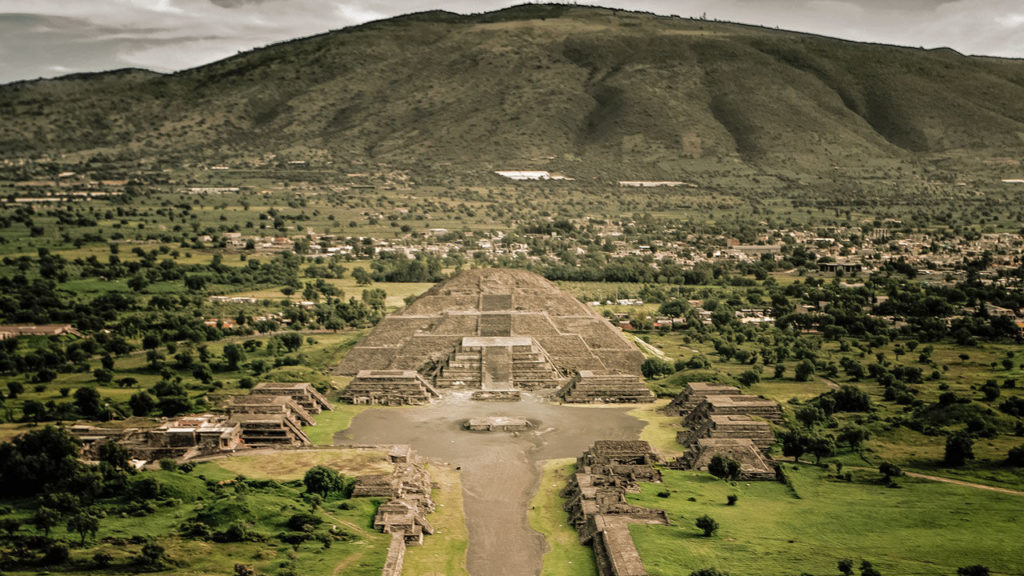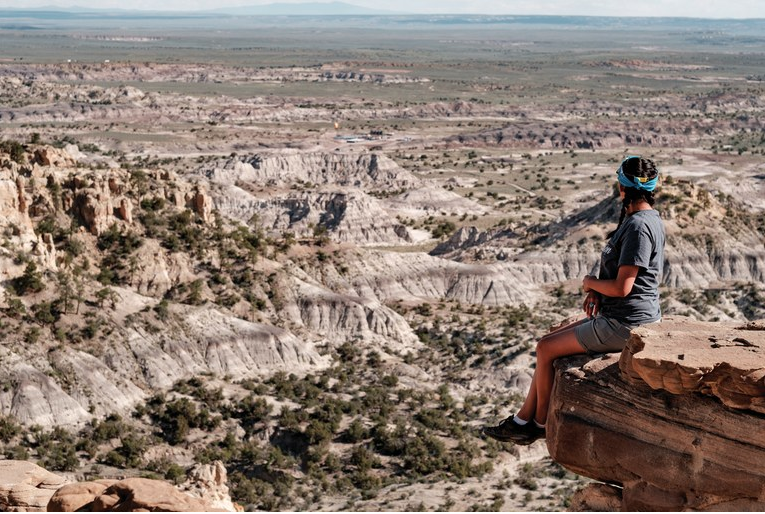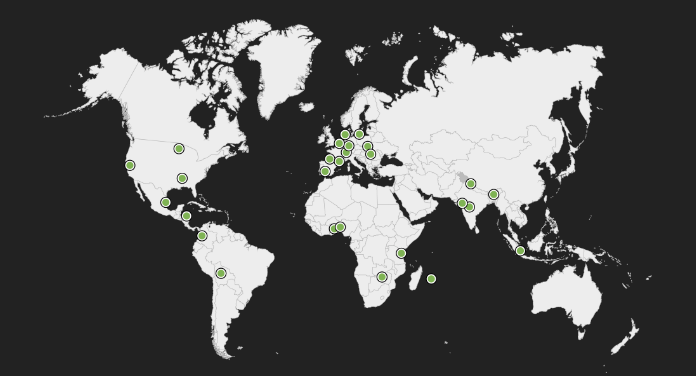Once a month, we put together a list of stories we’ve been reading: things you might’ve missed or crucial conversations going on around the web. We focus on environmental and social justice, cities, science fiction, current events, and political theory.
We’ll try to include articles that have been published recently but will last, that are relatively light and inspiring, and are from corners of the web that don’t always get the light of day. This will also be a space to keep you up to date with news about what’s happening at Uneven Earth.
It always feels like things are happening all at once: just as the global economy is transforming radically and we face an environmental crisis of global proportions, new social movements are rising up giving us new ways to think about the future. Weirdly, just at this moment, some are latching on to an idealized vision of modernity and the Enlightenment to defend the status quo. This month, we read articles that complicated the idea of modernity and offered ways to think about society and nature that incorporate, but go beyond, the Enlightenment tradition.
We also highlighted international environmental justice movements, showing that not everything is rosy—but people are fighting and thinking in creative ways, imagining different kinds of modernity and new kinds of internationalism. And lest we forget, March is women’s history month, and what better way to celebrate it than to highlight the—often undervalued—role that women play in global environmental justice movements?
Uneven Earth updates
How to navigate the disorientation of a seismic world | Link | Taking inspiration from past revolutions to build a new framework for the future
Krishna never looks up | Link | “Several tentacle-antennae coiled around his extended arm like Medusa’s hair.”
The migration crisis and the imperial mode of living | Link | Notes toward a degrowth internationalism
Dreaming spaces | Link | “Everywhere is filled with the dream of what could grow, slowly coming true”
Climate change mitigation and adaptation of the poor | Link | A call for decolonial responses to climate change
URGENT REPORT Protomunculus spp | Link | “If an infected robionic is discovered at any stage, universal mandate requires its immediate incineration”
Avatar revisited | Link | Gesturing at decolonization of the great epistemological divides
You might’ve missed…
Climate science’s official text is outdated. Here’s what it’s missing.
UN moves towards recognising human right to a healthy environment
Latin American countries sign legally binding pact to protect land defenders
Their forefathers were enslaved. Now, 400 years later, their children will be landowners. A rare victory for the Brazilian poor, as record Amazon land tract is handed over to descendants of escaped enslaved people.
German newspaper publishes names of 33,000 refugees who died trying to reach Europe
Indonesia’s forests caught between exploitation and failed aid programs
‘We are the forgotten people’: It’s been almost six months since Hurricane Maria, and Puerto Ricans are still dying. A multi-media feature.
The battle for paradise: Puerto Ricans and ultrarich “Puertopians” are locked in a pitched struggle over how to remake the island. Naomi Klein reports on the uneven legacy of the hurricane.
A reign of terror: Extra-judicial killings in Duterte’s Philippines. Dorothy Guerrero from Global Justice Now on the killings and opportunities for a Left response.
UK’s Labour sets out to overhaul neo-colonial development policy
Double trouble? How big cities are gentrifying their neighbours
Afrin in Kurdish Syria has been occupied by an invading Turkish army. Here are some articles providing some further context.
Don’t look away: The fight for Afrin is a struggle for radical democracy. Under fire from the forces of reaction, Afrin is the frontline in the fight for democracy. And by the same authors, a longer piece: Why #DefendAfrin? Confronting authoritarian populism with radical democracy. “At stake, not least, and deserving of our attention and solidarity is a radical alternative to both violent authoritarian nationalism and broader systemic violence associated with the contradictory nexus of blind elite cosmopolitanism, neo-imperialism and intensifying militarization that drives uneven globalization.”
The young feminist who died for my people. “Despite scarcity, we do not want bullets, we do not want food, and we do not want money. All we are asking for is action that will stop Turkey from flying its warplanes over the heads of our children.”
Love in a hopeless place. A first-hand account from a German internationalist YPG fighter from the now nearly forgotten battle of Raqqa.
The Kurds need Canada: What level of atrocity won’t we ignore?
Dear Hêlîn, or Anna—because I know you liked your both names. A letter to a British national who died in Afrin.
Turkish troops pour concrete on world’s oldest temple
New politics
Counter-mapping: cartography that lets the powerless speak. How a subversive form of mapmaking charts the stories and customs of those who would otherwise be ignored.
Some millennials aren’t saving for retirement because they don’t think capitalism will exist by then. They’re forming intentional communities and solidarity networks to support and protect each other.
How Cooperation Richmond is empowering marginalized communities to build an equitable economy
The wind of change: Renewables and self-determination. Katie Laing explores the fight for the right to community renewables on the island of Lewis. On one hand is a system that brings direct community control and builds a local economy, on the other one that extracts profit, control and resource from the islands.
An interview with David Bollier on the meaning of the commons for social transformation.
The Barcelona city government is trying to remunicipalize its water system from a private company. The rising tide for the democratic control of water in Barcelona.
An interview with Laura Pérez on the recent massive women’s strike in Spain, and what it means for the “feminization of politics” in Barcelona.
Realising an emancipatory rural politics in the face of authoritarian populism
Ostrom in the city: design principles for the urban commons
Carving out the commons. By now, you could be forgiven for assuming that “the commons” refers to another cocktail bar or coffee shop in yet another neighborhood people used to be able to afford. But Amanda Huron’s new book grounds the romantic notion of urban commons in the everyday struggles of working people.
Where we’re at: analysis
Soak the rich: An exchange on capital, debt, and the future with David Graeber and Thomas Piketty
Why are water wars back on the agenda? And why we think it’s a bad idea!
Citizens unite in Cape Town’s water crisis
Why Amartya Sen remains the century’s great critic of capitalism. In Sen’s work, the two critiques of capitalism – moral and material – cooperate. He disentangles moral and material issues without favouring one or the other, keeping both in focus.
Surveillance capitalism. Deleting our Facebook accounts following the recent privacy scandal is not enough: we need to challenge the structural problem of surveillance capitalism. On the digital and social networks supporting authoritarian populism, and what can be done to resist them. For those who are active on Facebook, an instruction on how to use it while giving it the minimum amount of personal data.
Loneliness and poor mental health still reign around the world. Since Japanese seniors increasingly find themselves living alone and with no one to talk to, a generation in Japan faces a lonely death, and committing petty theft has become a way for elderly women in particular to escape solitude and isolation; nearly 20% of women inmates in Japan’s prisons are seniors.
How American masculinity, by sending the message that needing others is a sign of weakness and that being vulnerable is unmanly, creates lonely men.
It’s easy to forget that activists fighting to eliminate injustice struggle with mental and physical health, too. A story on those who push, protest, and privately suffer as a result; and the personal account of an environmental professor whose battle with cancer helped her cope emotionally with the reality of climate change.
The necessary transience of happiness. “By selling a myth about the nature of happiness, capitalism creates atomistically-ambitious but socially-obedient individuals who can be distracted from collective values and aspirations.”
Why Americans should give socialism a try. Against the commodification of life and relationships: “Capitalism is an ideology that is far more encompassing than it admits, and one that turns every relationship into a calculable exchange. Bodies, time, energy, creativity, love — all become commodities to be priced and sold. Alienation reigns. There is no room for sustained contemplation and little interest in public morality; everything collapses down to the level of the atomized individual.”
Just think about it…
United States as energy exporter: Is it “fake news”?
It wasn’t just Greece: Archaeologists find early democratic societies in the Americas
Economics has an Africa problem. From 2015, but still relevant.
Why race matters when we talk about the environment
Is the way we think about overpopulation racist?
Corporations do damage to poor women with their global philanthropy. Companies like to focus their corporate social responsibility work on girls because supporting women is, in theory, noncontroversial. But such charitable efforts actually harm girls and women in the Global South by depoliticizing their problems, which are inherently political.
Climate change and the astrobiology of the Anthropocene. “We will either make it across to the other side with the maturity to ‘think like a planet’ or the planet will just move on without us. That, I believe, is the real meaning of what’s happening to us now. It’s a perspective we can’t afford to miss.”
“They are our salvation”: the Sicilian town revived by refugees. With an ageing, fast-shrinking population, Sutera saw Italy’s migrant influx as an opportunity.
Human rights are not enough. We must also embrace the fight against economic inequality.
How six Americans changed their minds about global warming
The tragedy of the commons. Common, a new housing startup, creates cities without qualities—but it will order your toilet paper.
Women and environmental justice
With the 8th of March being International Women’s Day, and Women’s History Month running through March in the US, UK and beyond, this month is a good time to turn the spotlight on women’s struggles and (often overlooked and undervalued) contributions to environmental justice.
Stories of women’s resistance. Women are on the frontlines of climate change around the world: they make up 80% of people displaced by it, are more vulnerable in the aftermath of disasters, and disproportionately face other risks described in this overview from the BBC. But they are also active agents in fighting back against the climate crisis and other forms of environmental injustice.
Finland’s reindeer-herding Sámi women, faced with a combination of weather changes and increased tree cutting that threatens their centuries-old tradition, fight climate change. Meet the “Polish Mothers at the Felling”: a grassroots group of mothers protesting intensified logging practices across Poland. In Nepal, women are running for office to protect traditional forests that belong to indigenous peoples and local communities, and they’re winning. The DRC mining industry is a prime example of how corporate power threatens women’s rights: this is why feminist activists are mobilising behind a proposed international treaty to regulate the impacts of transnational corporations. Indigenous activists of the Chaco movement – the most vital branch of which may be young, Native American women – try to quell a rising tide of oil and gas exploration in Chaco Canyon. In India, women resist plantations that uproot them from their customary forests. On International Women’s Day, a petition initiated by women in West and Central African countries demanded that oil palm companies give back community land and end violence against women living in and around large-scale oil palm plantations; a struggle that women in Guatemala and Colombia and Indonesia face as well.
Here is a women’s strike reader with socialist feminist highlights from the archives of Dissent Magazine, and a list of women activists from around the world taking up the fight for social justice.
Zafer Ülger discusses environmental issues in Turkey, and points to the need for movements that unite ecological struggles with other social struggles, including women’s liberation: “The crises experienced by labor, women or oppressed peoples are not separate from the crisis of nature and ecosystems; it is just the other side of the same coin.”
Female writers and naturalists. A list of nine women who are rewriting the environment from a female perspective; a beautifully intimate portrait of Rachel Carson and her life and work on the sea; and an exploration of Nan Shepherd’s work on the mountains, and what we can learn from it. “Shepherd does for the mountain what Rachel Carson did for the ocean — both women explore entire worlds previously mapped only by men and mostly through the lens of conquest rather than contemplation; both bring to their subject a naturalist’s rigor and a poet’s reverence, gleaming from the splendor of facts a larger meditation on meaning.”
Ecological thought
What does it mean to think ecologically?
Culture shift: redirecting humanity’s path to a flourishing future. It’s time to build a new worldview with connectedness at its center.
When nature and society are seen through the lens of dialectics and systems thinking: “Capitalism casts nature as a resource which is to be exploited, squeezed and discarded. This is in part because of a linear, reductive understanding of the world. But there is an alternative. Dialectical, systems thinking views nature and society through the lens of complexity, contradiction and phase transitions.”
Thinking ecologically: a dialectical approach. In this essay Murray Bookchin warns against overly spiritual, reductive, and mechanistic approaches in ecological thought, injecting a political analysis into the discussion of what it means to think ecologically. In particular, he directs his ire against various strains of new age environmentalism as well as systems thinking.
Mentalities of greening, governing, and getting rich
Utilitarianism made for ‘Hard Times’ in Dickens’ England
Kim Stanley Robinson, the author of sci-fi classics like Red Mars and the more recent New York 2140, wrote an op-ed in The Guardian arguing for a variation of E. O. Wilson’s ‘half earth’ proposal. The idea is that humans should be kicked out of half the planet and inhabit the rest in super-dense and ecological cities. Bram Büscher and Robert Fletcher, two political ecologists, wrote an essay at the time critiquing Wilson’s book: “Addressing biodiversity loss and other environmental problems must proceed by confronting the world’s obscene inequality, not by blaming the poor and trusting the ‘free market’ to save them.”
10 years ago, the first international degrowth conference was held in Paris. To celebrate, Federico Demaria writes about the rise – and future – of the degrowth movement.
From 2017, a history of the Limits to Growth thesis and the World3 model, which was ridiculed in the 80s but turned out to be correct.
Eric Pineault’s exploration of “how the spectre of Degrowth haunts left ecomodernism as something unimaginable; how it works to foreclose certain avenues of radical thought and practice.”
Another worthy read on the ENTITLE Blog by Emmanuele Leonardi, where he puts the degrowth vs. accelerationism debate in context of the question of value.
Beyond growth or beyond capitalism? A critique of Herman Daly’s steady-state economics, which cannot imagine a world beyond capitalism.
Introduction to an ecosocialist approach to production and consumption
Better technology isn’t the solution to ecological collapse. We need to ditch our addiction to GDP growth.
Modernity and the web of life
With the publishing of Steven Pinker’s new book, Enlightenment Now!, there’s been a lot of talk about modernity and the Enlightenment, with accusations flying around of anyone who disagrees with the present state of things being accused of anti-modern and anti-Enlightenment. Here are a few rebuttals:
The limitations of Steven Pinker’s optimism
Steven Pinker’s optimism on climate change is misplaced
Waiting for Steven Pinker’s enlightenment
You can deny environmental calamity – until you check the facts
There never was a West (or, democracy emerges from the spaces in between)
In 2015, Anthony Galluzzo wrote a series of articles analyzing the literature of Promethean modernism—worth giving them a read. A tale of two Prometheuses in many parts: Part 1, 2, and 3.
Meanwhile, there’s been a slew of stories about the impacts of modernity on rural areas, our cities, and nature.
Agriculture wars. A tale of the industrialization of rural America and country music as resistance.
Our dying soils: the invisible crisis under our feet
Urban development in India: chasing the global at a cost to the local?
Empty promises: how 600 million young people in India have been missold the future
Mexico: the dangers of industrial corn and its processed edible products
The 100 million city: is 21st century urbanisation out of control?
The risks are rising for cities in Anthropocene era
Downtown is for people. It’s always worth revisiting Jane Jacob’s classic 1958 essay. “If the downtown of tomorrow looks like most of the redevelopment projects being planned for it today, it will end up a monumental bore. But downtown could be made lively and exciting — and it’s not too hard to find out how.”
Sci-fi and the near future
How J.G. Ballard’s science fiction tells the future of our privatized cities
Introduction: the rising tide of climate change fiction
A nuclear warning designed to last 10,000 years. “Consider a wanderer 10,000 years in the future discovering a strange construction of granite thorns in the New Mexico desert, their points weathered by centuries, their shadows stretching at sinister angles. The wailing figure from Edvard Munch’s painting “The Scream,” itself long ago turned to dust, appears on sporadic signs near these totems. It’s unclear for what this site was intended, or who created its menacing forms.”
Apocalypse soon. The science fiction of this century is one in which great existential threats are known: they are real, and terrible.
An atlas of real utopias. Introducing the Atlas of Utopias, which highlights 32 stories of radical transformation that prove that another world is not only possible in the future, but already exists.
Sufficiency: Moving beyond the gospel of eco-efficiency, a report by Friends of the Earth Europe.
Platform cooperativism: challenging the corporate sharing economy
Decolonising science: a reading list
Whose land is it anyway? A manual for decolonization
The Decolonize issue of YES! Magazine
The Myths of Conquest series, debunking the myths of European colonization of the New World.
Want to receive this as a newsletter? Subscribe here.









